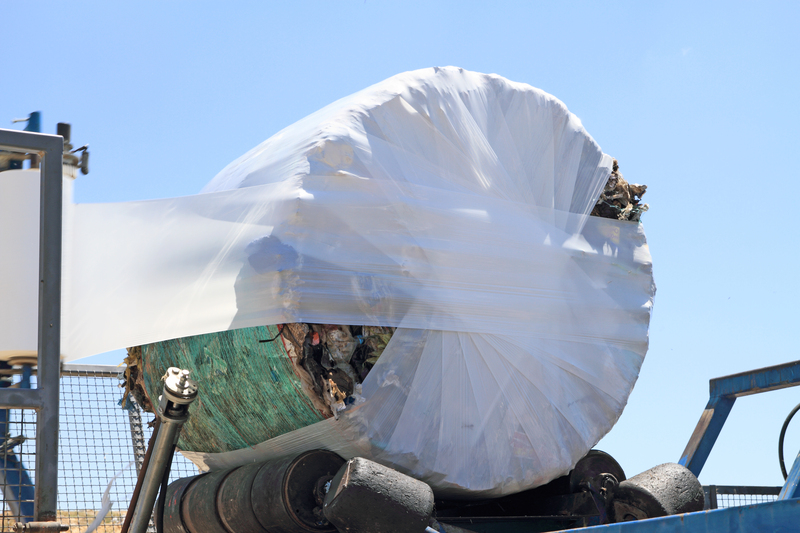How to Keep Bulky Waste Removal Costs Low and Hassle-Free
Disposing of large, unwanted items can quickly become expensive, stressful, and time-consuming. Whether you're clearing out a house, managing leftovers from a renovation, or simply getting rid of old furniture, bulky waste removal is a common challenge for homeowners and businesses alike. But with a strategic approach, you can ensure your unwanted items are disposed of efficiently, affordably, and with minimal hassle. In this guide, we'll explain how to keep bulky waste removal costs low and hassle-free, providing practical tips and industry insights.

Understanding Bulky Waste
Bulky waste refers to items that are too large and heavy to be collected via standard rubbish bins. Common examples include:
- Furniture (sofas, beds, wardrobes)
- Household appliances (fridges, washing machines)
- Garden waste (branches, tree trunks)
- Mattresses and carpets
- Building rubble and DIY leftovers
Because of their size and nature, bulky waste removal services are often needed, which can incur significant costs if not managed wisely.
Common Methods of Bulky Waste Disposal
Before exploring cost-cutting techniques, it's important to understand the main disposal options:
1. Local Council Collection
Many councils offer bulky waste collection services for residents. Some provide free pickups, while others charge a nominal fee. However, there may be limits on what they'll take or how often you can use the service.
2. Private Waste Removal Companies
Private firms will collect almost anything, but their fees can be higher than council rates, especially for large jobs, hazardous materials, or urgent collections. However, they may be more flexible and quicker than municipal options.
3. Skip Hire
Hiring a skip can be convenient for large or ongoing clear-outs. Skip hire costs vary based on size, permit requirements, and rental duration. Self-loading is usually required, but skip hire is ideal for long projects.
4. Recycling Centres
If you have the means to transport items yourself, recycling centres often accept large waste items for free or at a lower cost. It requires effort and a suitable vehicle, but the cost savings can be significant.
5. Donation or Resale
Not all unwanted items are destined for landfill. Consider donating functional furniture or appliances to charity, or selling them online. This can eliminate disposal fees, and even generate a small profit.
Strategies to Keep Bulky Waste Removal Costs Low
With the right planning and approach, you can minimise bulky waste disposal costs. Here's how:
1. Plan Ahead and Assess Your Waste
Before booking a collection or skip, take inventory of all the bulky items you need to dispose of. Categorise items according to material (wood, metal, electronics) and state (usable, broken, hazardous). This will help determine the most cost-effective removal method for each item.
Tip: Don't mix hazardous items (like paint cans or electricals) with general waste, as this can increase fees.
2. Use Local Council Services Where Possible
Take advantage of any council bulky waste removal schemes or free recycling opportunities. Familiarise yourself with the limits (such as item number or frequency) to maximise your savings. Most councils publish detailed information on their websites.
Tip: Schedule collections well in advance, as waiting lists are common for popular services.
3. Separate Items for Reuse, Recycling, and Landfill
Segregate your bulky items into:
- Reusable (can be donated or sold)
- Recyclable (metals, white goods, some woods)
- Landfill only (damaged or treated items)
This allows you to use different (and cheaper) disposal routes. For example, taking metals to a scrap yard can even earn you money.
4. Arrange Group Collection with Neighbours
If several people on your street need to dispose of large items, band together for a group bulky waste removal. Splitting the cost of a skip or a private collection can make it much more affordable per household.
5. Compare Local Waste Disposal Companies
Don't just book the first private removal service you find. Compare quotes from at least three providers, and read reviews to check reliability and hidden charges (such as for stairs, distance, or specific materials).
Always ask if discounts are available for straightforward jobs (such as street-level pickups or pre-sorted waste).
6. Maximise Skip Efficiency
If hiring a skip, pack it sensibly to avoid wasted space and needing a bigger (more expensive) skip. Break down furniture, squash boxes, and stack items carefully. Confirm with the provider what can and cannot be placed in the skip to avoid fines.
7. Consider 'Man and Van' Services
For relatively small volumes of bulky waste, a man and van waste removal service can be cheaper and more convenient than full skip hire. These providers often charge based on the load size or weight, so accurate information saves money.
8. DIY Bulky Waste Disposal
If you have the means to transport the waste to a recycling facility, this can often be the cheapest option of all--sometimes free. Just be sure to check what items are accepted and any restrictions (ID, proof of address, commercial waste bans, etc.) at your local centre.
Tips for a Hassle-Free Bulky Waste Removal
Minimising cost is one side of the equation, but convenient and stress-free removal is just as important. Here's how to make the process smoother:
- Clear Access: Ensure waste is easily accessible for pickup or loading. Blocked or cluttered paths can lead to additional charges or delays.
- Double-Check Schedules: Confirm your collection date and time to avoid missed pickups, which can result in extra fees.
- Label Hazardous Items: Clearly identify batteries, chemicals, or electricals for special handling.
- Be Present During Collection: If possible, oversee the pickup. This avoids misunderstandings and ensures everything goes smoothly.
- Get Receipts: Request a collection or disposal receipt for peace of mind and proof if problems arise later (especially with fly-tipping regulations).
What Not to Do: Common Bulky Waste Removal Mistakes
- Dumping illegally: Fly-tipping is illegal, leads to hefty fines, and harms your community and environment.
- Choosing the wrong size skip: Underestimating your load leads to higher costs for an additional skip; overestimating wastes money on unused space.
- Ignoring recycling or reuse options: Paying to dump items that could be donated or recycled is both expensive and wasteful.
- Forgetting about hidden fees: Always check for additional costs for stairs, same-day service, or unexpectedly heavy items.
- Not checking permits for skips on public land: Failing to arrange correct paperwork can result in fines and delays.
Environmental Considerations and Legalities
It's everyone's responsibility to dispose of waste legally and with minimal environmental impact. Before arranging your bulky waste collection:
- Check that your contractor is licensed. In the UK, you can search the Environment Agency public register.
- Avoid unlicensed 'fly-by-night' collectors, as the person disposing remains liable if the waste is later fly-tipped.
- Prioritise recycling and reuse: Many bulky items (such as white goods and metals) are especially valuable for recycling and should never go to landfill.
- Exporting waste illegally or dumping hazardous waste can result in severe penalties.
Tip: Some councils or charities offer furniture reuse schemes, diverting large items from landfill and helping those in need.

Frequently Asked Questions About Bulky Waste Removal
How much does bulky waste removal cost?
Prices vary based on location, amount, and method. Council collections can cost as little as ?10-?60 per item/set, private companies may charge from ?40 upwards for small loads, and large skip hire may run from ?100 to ?300+. Grouping waste, recycling, and using council services are the best ways to keep costs low.
Can all bulky waste be recycled?
No. While many items (metals, clean wood, some plastics) can be recycled, others (soiled mattresses, composites, certain treated woods) must go to landfill. Check with your local facilities for guidance.
Is it cheaper to hire a skip or use a man and van?
It depends. For ongoing, large-scale rubbish (like a renovation), a skip may be better value. For a one-off pickup of a few big items, a 'man and van' bulky waste removal service is often cheaper and more flexible.
Can I leave bulky waste on the pavement for collection?
Only if specifically arranged with your local authority or removal firm. Leaving items on public land without authorisation can lead to fines for fly-tipping.
How can I prepare bulky waste for collection?
- Disassemble large items where safe to do so
- Remove loose or hazardous materials
- Keep items dry and accessible
- Label electricals, batteries, and toxic materials for appropriate handling
Conclusion: Saving Money and Stress on Bulky Waste Removal
Bulky waste disposal doesn't have to be an expensive headache. By planning ahead, sorting items for the best disposal option, and making use of free or cheap council services, you can keep costs--and hassle--to a minimum. Remember to compare quotes from reputable providers, consider group pickups with neighbours, and always prioritise recycling, reuse, and environmental responsibility.
Above all, never cut corners with illegal dumping or unlicensed waste carriers. Smart planning, a little effort, and the right strategy make bulky waste removal low-cost, simple and stress-free for everyone.
Have more questions about local options for bulky waste removal? Contact your council or trusted local remover for expert advice.